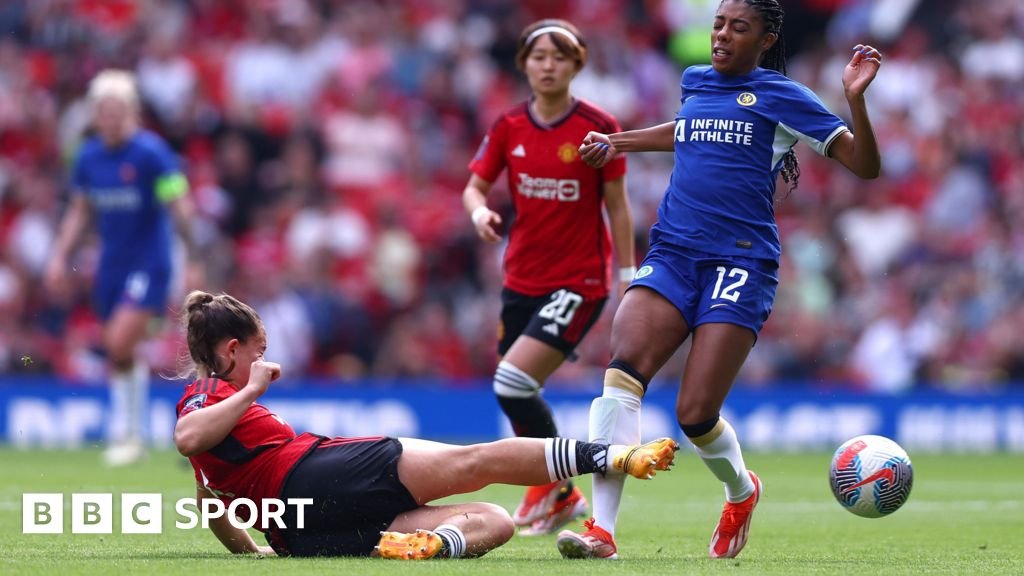WSL: How can women’s football avoid another messy postponement?

For the first time, there are three English clubs competing in the Women’s Champions League group stages.
Uefa regulations state clubs from the same national member associations cannot face each other in the group stages, while among their key principles is an assurance that they must play on alternate evenings.
So when Uefa sent through their Champions League dates over a year ago, clubs and the WPLL could have been aware of a potential issue involving the schedule if more than one English club reached the group stages.
The first matchday was a Tuesday, which followed a WSL weekend, when the default day for a game is a Sunday.
Chelsea automatically qualified for the group stages as WSL winners, while Manchester City and Arsenal secured their spots after successfully negotiating qualifying last week.
Chelsea and the WPLL say they had been in regular discussions with Uefa, asking them to reconsider putting an English team in action on Tuesday – especially as it was just a principle and not an official regulation preventing it – but were unsuccessful in their requests.
That perceived lack of flexibility by Uefa has caused frustration.
It meant the WPLL had to rejig their schedule to help Chelsea, who said their priority was player welfare and it was unjust to expect athletes to play two matches in three days.
Moving the WSL match to Saturday, 5 October to give Chelsea an extra day to recover before their European match was out of the question for Manchester United, who didn’t want to play three matches in seven days.
Chelsea could not swap their matchday in the Champions League with London rivals Arsenal because it would have caused similar issues for the Gunners in terms of scheduling. Their WSL match at Emirates Stadium on Sunday would have been very tricky to move with the men’s team playing there the day before.
Ultimately, the lack of wiggle room plays into a bigger discussion on scheduling in the women’s game.
Several high-profile players and managers have questioned major organisations, such as Fifa and Uefa, with international calendars expanding, European competitions increasing and player welfare becoming a growing concern.
